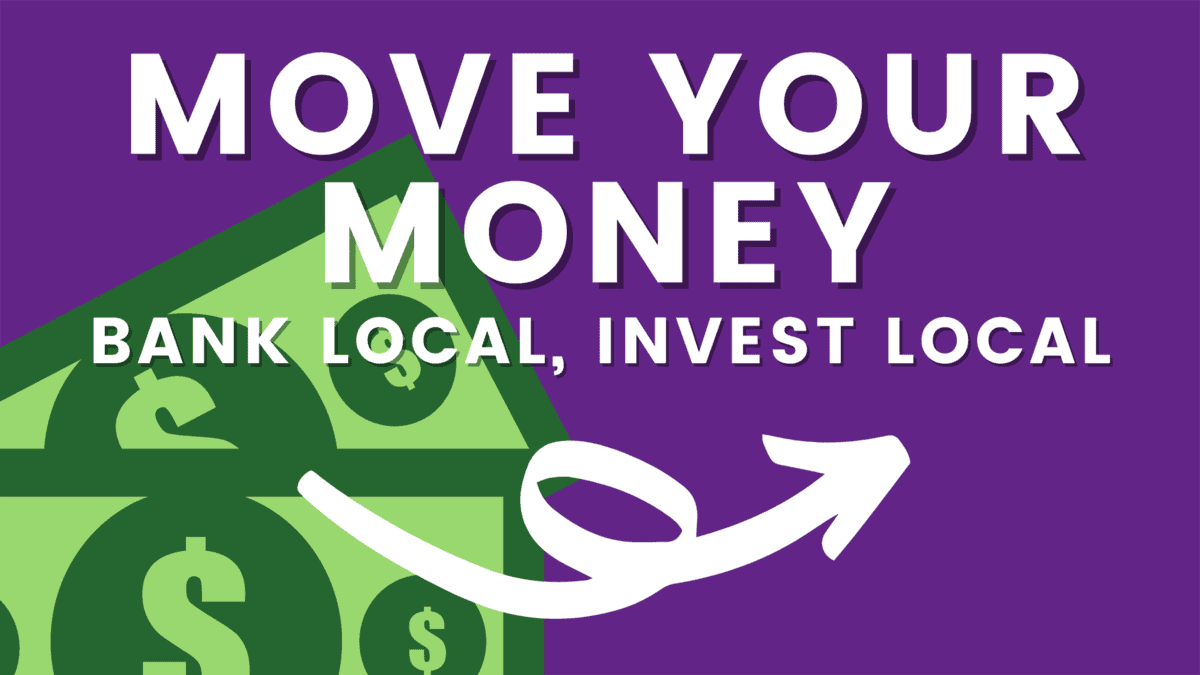Beyond the Big Banks: How rural small businesses can Move Their Money locally
The “Move Your Money” campaign wants you to shift your financial resources to local banks and investment opportunities. That makes a lot of sense for small town businesses who care about having a thriving local economy. The 2024 Move Your Money Campaign The American Independent Business Alliance (AMIBA) has been at the forefront of the […]

The “Move Your Money” campaign wants you to shift your financial resources to local banks and investment opportunities. That makes a lot of sense for small town businesses who care about having a thriving local economy.
The 2024 Move Your Money Campaign
The American Independent Business Alliance (AMIBA) has been at the forefront of the “Move Your Money” campaign, offering resources and support for those interested in making the switch to local banking. This year, AMIBA has emphasized the critical role that local banks and credit unions play in fostering economic resilience within small towns and rural communities. By banking locally, businesses and individuals not only enjoy more personalized service but also contribute to a financial ecosystem that directly benefits their immediate environment.
Key Points for Rural Small Businesses
For rural small businesses, the decision to bank locally can have far-reaching implications. Here are some practical benefits from moving your money:
- Strengthening Local Economies: Every dollar deposited in a local bank or invested in a local business circulates within the community, amplifying its economic impact. This circulation helps to create jobs, fund local projects, and support the growth of other small businesses.
- Access to Tailored Financial Services: Local banks often have a deeper understanding of the unique challenges and opportunities faced by rural businesses. This insight allows them to offer more tailored financial products and advice, which can be crucial for businesses looking to navigate the complexities of rural economies.
- Building Community Connections: Banking locally facilitates relationships that go beyond mere transactions. It fosters a sense of community and mutual support, where businesses and banks work together towards common goals.
- Advocacy and Support: AMIBA and other organizations provide a wealth of resources for businesses interested in moving their money. From virtual screenings that explore cooperative economies to discussions on local investing, these platforms offer valuable insights and networking opportunities.
How local is your bank?
As rural and small town banks merge and change, it can be tough to tell if your once-local bank really is still local. With regulations pushing small town banks to buy other small banks, your bank now might be semi-local or owned somewhere else. But does that make them a bad neighbor?
Even regionally owned banks are better for your community than giant national or international banks. Here are some practical ways to decide just how local your local bank acts.
- Check the current ownership structure: Look for information about the bank’s ownership structure on their website or by contacting the bank directly. Community-owned banks are typically owned by share-holding local residents, while regional or commercial banks may be owned by larger corporations or shareholders from outside the community.
- Research the recent history: Local banks often have a long history in the community, but may have shifted priorities if ownership changed. Check the bank’s website or media stories for information about its recent community-focused initiatives.
- Visit the local branch: Visit in person to get a sense of the bank’s community involvement. Look for local causes featured in the lobby. See what local ties are visible.
- Ask for recommendations: Reach out to other local businesses, community leaders, or residents to ask for their recommendations on local banks. They may have personal experiences or insights that can help you make an informed decision.
How to move your money
Check the checklist in Move Your Money and Bank Local.
Advocate for Local Banking
Catch up with additional local banking resources from the Institute for Local Self-Reliance.
The “Move Your Money” campaign is more than just a call to action; it’s a movement towards sustainable, community-focused banking. For rural small businesses, the benefits of participating extend beyond financial gains. It’s about building a resilient local economy that can withstand the ebbs and flows of the broader financial system.
Subscribe to Small Biz Survival.
